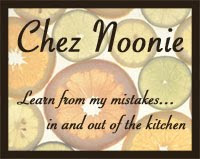 Zatar is a mixture of sesame, sumac, hyssop, and other spices, finely ground together into a tapestry of taste and texture. It imparts a warm, lemony, and earthy taste, unlike anything else I have ever sampled, and works well on roasted vegetables, baked pita bread, and all manners of meat. Zatar is a great solution to the mid-week cooking blah's, where it adds tang and surprise to the "are we having that again" peanut gallery. It also doubles nicely for holiday meals, given that so much of the sum of its parts have historic and religious import. For example:
Zatar is a mixture of sesame, sumac, hyssop, and other spices, finely ground together into a tapestry of taste and texture. It imparts a warm, lemony, and earthy taste, unlike anything else I have ever sampled, and works well on roasted vegetables, baked pita bread, and all manners of meat. Zatar is a great solution to the mid-week cooking blah's, where it adds tang and surprise to the "are we having that again" peanut gallery. It also doubles nicely for holiday meals, given that so much of the sum of its parts have historic and religious import. For example:- Sesame: A wonderful seed that has been around since biblical days, although not mentioned explicitly in the Hebrew or Christian bibles. It is repeatedly referenced in the Koran, especially as sesame oil. It is also used as part of the mourning ritual:
"Malik said, 'A woman whose husband has died should anoint her eyes with olive oil and sesame oil and the like of that since there is no perfume in it.' " Hadith - Muwatta 29.107
- Sumac: A powder made from the purple leaves of the Mid Eastern sumac tree, one much like the one in the Terebinth of Morah, which landmarked where Abraham traveled in Genesis.
- Hyssop: There seems to be a lot of debate over which plant the bible actually was referencing as hyssop; the more common theories seem to place their bets on Syrian Oregano or marjoram. It is often referenced with purification and cleansing. In Pslams 51:7, after King David has gone to Bathsheba, he asks for compassion.
"Be gracious unto me, O God, according to Thy mercy; according to the multitude of Thy compassions blot out my transgressions. Wash me thoroughly from mine iniquity, and cleanse me from my sin.For I know my transgressions; and my sin is ever before me. Against Thee, Thee only, have I sinned, and done that which is evil in Thy sight; that Thou mayest be justified when Thou speakest, and be in the right when Thou judgest.Behold, I was brought forth in iniquity, and in sin did my mother conceive me. Behold, Thou desirest truth in the inward parts; make me, therefore, to know wisdom in mine inmost heart. Purge me with hyssop, and I shall be clean; wash me, and I shall be whiter than snow."
I order mine online; you can find it at nuts online (my favorite for bulk dry goods) or amazon. You can also purchase it in most Middle Eastern grocery stores; either way, just don't give up the search easily. This spice mix has more aliases than a terrorist watch list, and is also known as zaatar, zatr, zahatar, or satar. Once you have it, it keeps well in a dark canister for about a year.
Below is my Friday night standard Shabbat dinner; I find the zatar gives the chicken and potatoes a nice zing and terrific color, and hope you enjoy it as much as my family does.

Zatar Chicken a la Noonie
Ingredients
1 4 - 5 lb chicken, washed, patted dry, and cut into 8 pieces
1/4 cup + 2 tbsp olive oil
Kosher salt and pepper
1 oz zatar
2 lemons, zested and juiced
1 lb of fingerling potatoes, cleaned and scrubbed
Method
- Preheat the oven to 350 degrees.
- Sprinkle olive oil on chicken. Massage kosher salt and black pepper into the chicken.
- Sprinkle chicken with zatar and massage gently into the meat. Place in roasting pan.
- Sprinkle lemon zest, less 1 tsp, on top of chicken pieces, and then add the lemon juice.
- Roast the chicken for 1 hour. While cooking, prepare the potatoes. In a bowl, combine potatoes, olive oil, and 1 tbsp kosher salt. Massage thoroughly. Add remaining 1 tsp of lemon zest to the mix. Set aside.
- After the chicken has cooked for 30 minutes, add the potatoes to the roasting pan. Continue to cook for the remaining 30 minutes.
- At the end, turn on the broiler for an an additional 5 minutes. Remove pan from oven, allow chicken to rest for 10 - 20 minutes under foil. Serve warm.
Note: You can also throw in green beans for the last 10 minutes of cooking. They work well with zatar, and the chicken fat and olive oil will cook them beautifully.





No comments:
Post a Comment